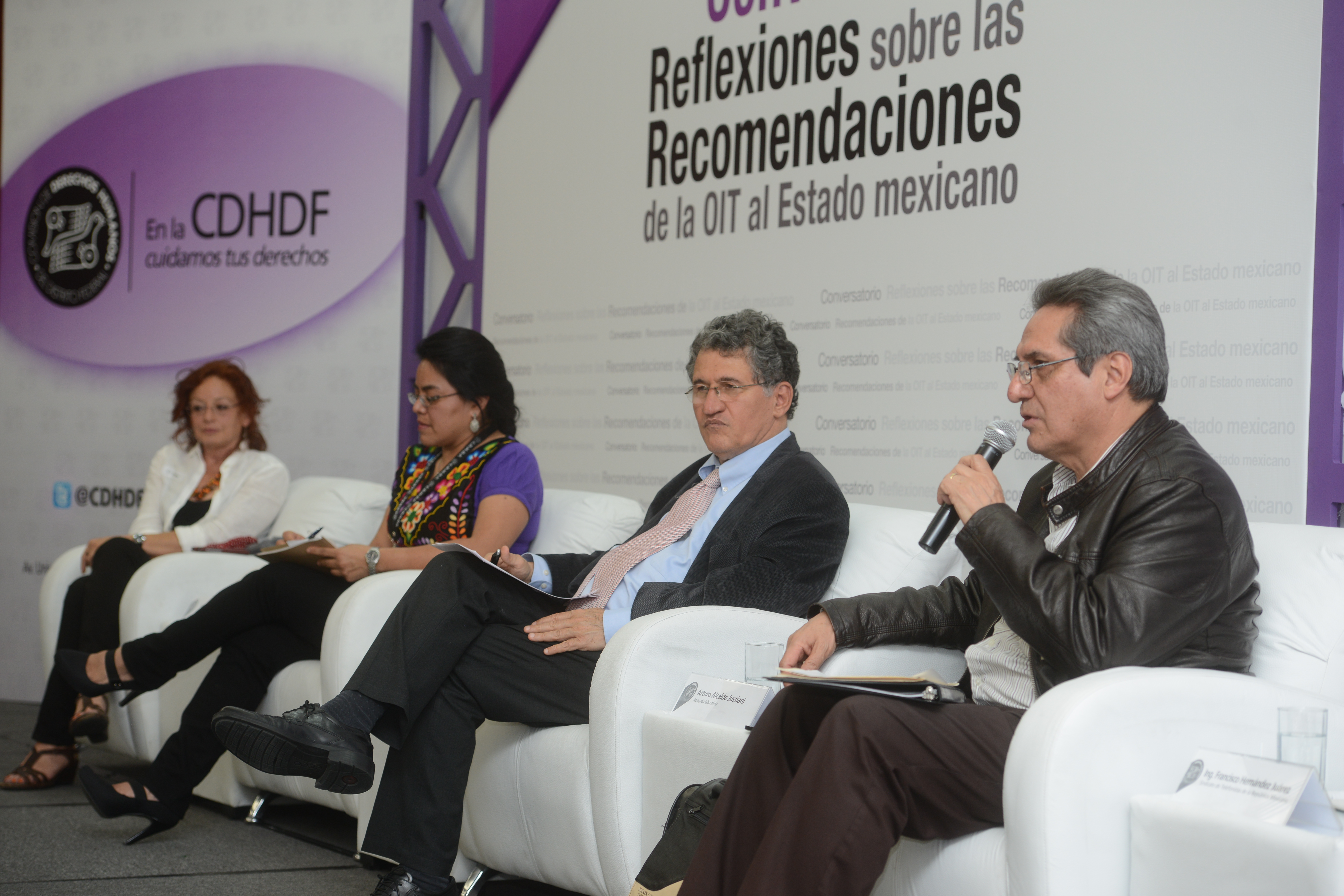15 July, 2015 At a forum on the ILO recommendations to the government of Mexico held in Mexico City in early July, participants were reminded that, while slow, international mechanisms do help strengthen the hand of unions at the national level.
“The stars have aligned to create the conditions for change in Mexico, and now independent unions and their allies must hold the government’s feet to the fire and demand the right to organize and bargain collectively”, participants at a round-table in Mexico City were told last week.
Discussions in the committee rooms of the International Labour Organization (ILO) in Geneva can sometimes seem very distant from the daily lives of workers and their unions on the ground, but a group of activists and unions are determined to make sure that decisions taken in Geneva have a real impact where it matters most.
Over 200 people gathered at Mexico City’s Human Rights Commission at the beginning of July to listen to some of those who have been directly involved in putting pressure on Mexico’s government through the ILO. The government is asked to tackle the use of so-called ‘protection contracts’, sham contracts negotiated without the knowledge or consent of workers. IndustriALL’s Suzanna Miller was one of the speakers.
The rights of free and democratic unions in Mexico have been on the ILO’s agenda since 2009 when the International Metalworkers’ Federation, a founding member of IndustriALL, lodged a complaint with the Committee of Freedom of Association (CFA), resulting in a favourable ruling.
In June 2015, pressure mounted when the International Trade Union Confederation and IndustriALL succeeded in having Mexico examined by the ILO Committee on Application of Standards for its failure to implement ILO Convention 87. Again, this led to a strong set of recommendations and forced the government to agree an action plan involving 27 labour secretaries at the state level.
The favourable outcome at the ILO was in large part due to the unified position of the workers’ group at the ILO, as well as an unprecedented intervention from the US government delegation, prompted by concerns over the impact of Mexico’s compromised labour record on ongoing TPP negotiations.
Participants vowed to keep up the pressure and agreed to submit a coordinated response to the ILO, documenting the on-going use of protection contracts in all sectors of the economy and the unrelenting violations to ILO C87 on Freedom of Association that workers experience daily.






